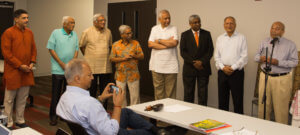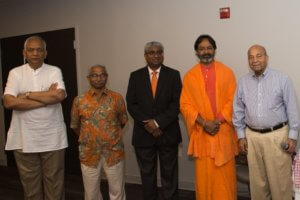Sanskrit Studies
The Sanskrit Studies area features immersive study of the Sanskrit language in Sanskrit medium, starting from basic familiarity, moving towards proficiency and takes the students deep into the world of mastery of Sanskrit. Underscoring the importance of Sanskrit for the study of the source texts of the Vedas, Vedanta, Yoga, Ayurveda, and Shastras, in general, i.e. the varied knowledge systems rooted in Hindu thought, this collection of courses focus on practice-oriented study, providing direct, unmediated access to these source-texts without having to rely on translations.
Immersion in this area prepares students for a rigorous engagement with Hindu knowledge systems including the literary, spiritual and scientific literature embedded in the Sanskrit language. It enables the students to explore ancient and classical texts such as the Upanishads, Ramayana, Mahabharata, Puranas and the Prasthana Traya with a commitment and concern for the wellbeing and future of humanity. Students who wish to specialize in Sanskrit may take a minimum of six and as many as ten different courses from the Sanskrit Concentration, in addition to the basic Hindu Studies Foundation courses to complete the course work requirements for their Graduate Degrees.
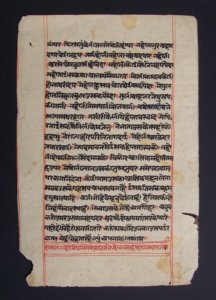
The schools of philosophy based on the last portions of the Vedas, i.e. Vedānta, not only vary in their interpretation ...
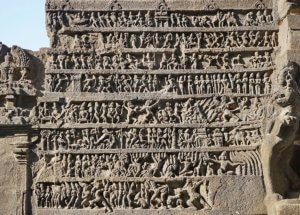
Sahitya II – Padya, delves into the intricate structure of Śabda (words) and Artha(meanings) in classical Sanskrit literature. Students will explore ...

SAN8108 – Ayurveda Advanced builds on the foundational concepts of Ayurveda Basic, guiding students into deeper clinical understanding and classical textual ...
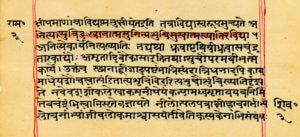
SAN8106 – Mimamsa Advanced course delves into the epistemological core of Pūrva-Mīmāṃsā, focusing on its six valid means of knowledge ...
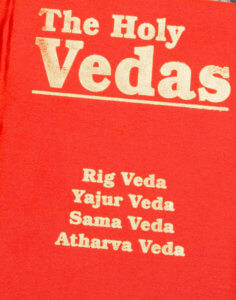
SAN8104 - Veda IV – Atharvaveda course explores the Atharvaveda’s distinctive place within the Vedic canon through a structured study of ...

Sahitya IV – Gadya and Champu course offers an advanced study of Sanskrit poetics through the lens of Rasagaṅgādhara. Students ...

SAN8101 - Term Project – Sanskrit Studies, is a semester-long capstone course that enables students to demonstrate independent engagement with ...

SAN7105 - Ayurveda Basic introduces the foundational concepts of Ayurveda, its history, and the classical Samhitās. Students will explore key ...
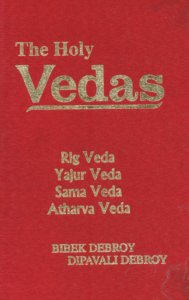
SAN7104 - Veda III – Yajurveda and Sāmaveda course delves into the intricate structures and classifications of the Yajurveda and ...
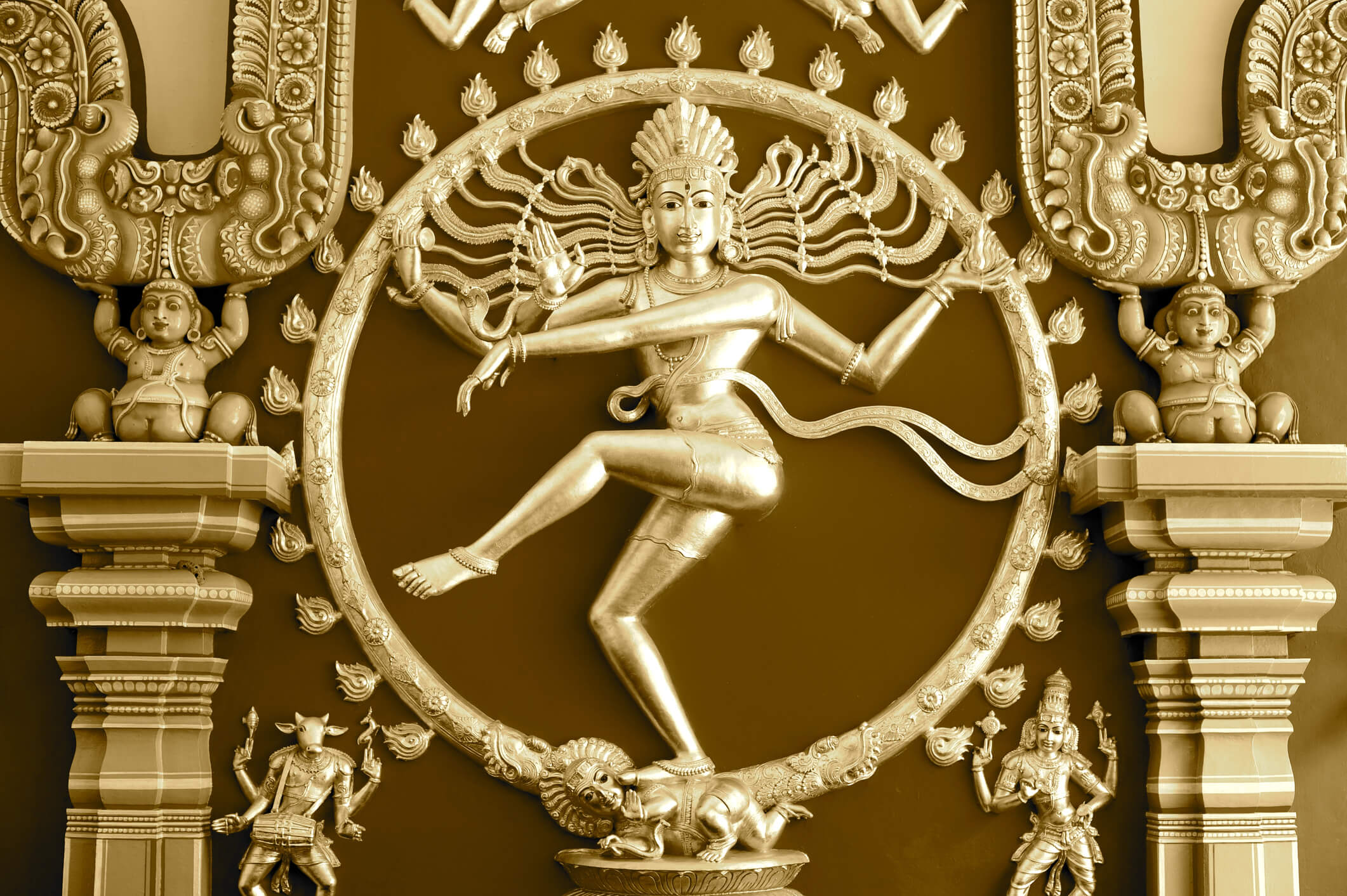
Sahitya III – Nataka offers an immersive study of Sanskrit dramaturgy, focusing on the Lakṣaṇāni (defining traits) of Dṛśya kāvyāni ...

SAN7101 - This Nyāya-Vaiśeṣika Advanced course drives deeper into the intricacies of the Nyāya-Vaiśeṣika system, focusing on its ontological framework ...
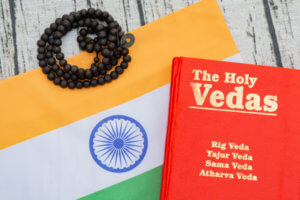
SAN6104 - Veda II – Rgveda course unveils the wisdom of Ṛgveda inviting the students to explore the foundational hymns ...

SAN6101 - Nyāya-Vaiśeṣika Basic course delves into the profound philosophical systems of Nyāya and Vaiśeṣika, exploring their foundational concepts, historical ...

SAN5103 - Sahitya I – Landscape offers an in-depth exploration of Sāhitya-śāstra, the science of literature, providing a strong foundation ...

SAN7106 – Mimamsa Basic introduces students to the foundational principles and methodologies of Pūrva-Mīmāṃsā, the classical Indian school dedicated to ...

SAN8102 - Vyākaraṇa IV explores the profound linguistic and semantic structures of compound words in Sanskrit. Students will classify and ...
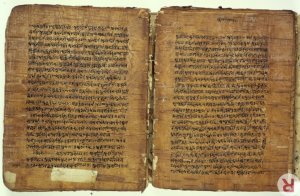
SAN7102 – Vyākaraṇa III delves into the intricate structure and semantics of pratyayāḥ (suffixes) as applied to dhātavaḥ (verb-roots). Students ...

SAN6102 - Vyākaraṇa – II offers a focused study of pratyayāḥ (Sanskrit suffixes) and their critical role in noun formation ...
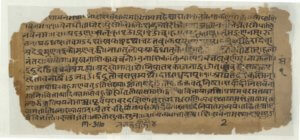
SAN5102 - Vyakarana – 1 offers a comprehensive introduction to Vyākaraṇa, the study of Sanskrit grammar, focusing on Pāṇini’s Aṣṭādhyāyī, ...

SAN5101 - Vedic Sciences Foundations introduces students to the foundational frameworks and methodologies used in classical Indic technical texts, essential ...

SAN5104 – Veda I is a core course that provides an introduction to the Vedas, the foundational texts of Hinduism ...
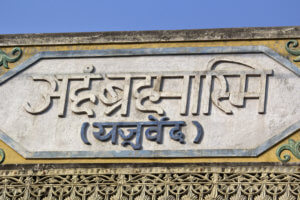
SAN8109 – Vedanta Basic course offers a foundational exploration of Vedānta, introducing key schools of thought—Advaita (Śaṅkara), Viśiṣṭādvaita (Rāmānuja), and ...

SAN8107 – Jyotiṣa Advanced, which is the second of a two-part course series on Jyotiṣa, is dedicated to the study ...

SAN7107 – Jyotiṣa basic course offers a comprehensive introduction to Jyotiṣa, the traditional Indian system of astronomy and astrology. Focusing ...

SAN8105 - Yoga Advanced course provides an in-depth study of Patañjali's Yogasūtras through immersive textual analysis, focusing on Bhāva-Ganeśa's intricate ...

SAN6105 - Yoga Basic course unfolds the essence of Yoga through an in-depth study of the Yoga Sūtras, exploring various ...
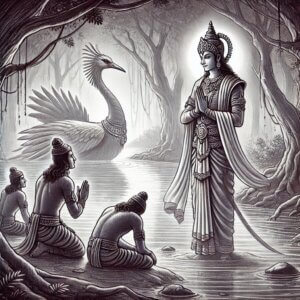
SAN2001 – The Yakṣa-yudhiṣṭhira-saṁvāda from the Mahābhārata’s Vana Parva is a profound philosophical dialogue where Yudhiṣṭhira engages with a Yakṣa, ...

SAN2002 – This course offers an in-depth study of Sanskrit prosody (छन्दः), focusing on both Vedic and laukika meters. Students ...
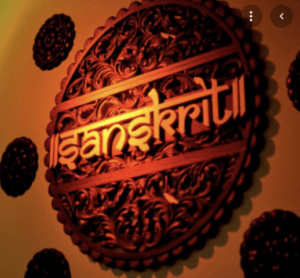
The Master of Arts in Sanskrit Program (MAS) offers immersive study in the Sanskrit language, advancing the student from proficiency ...
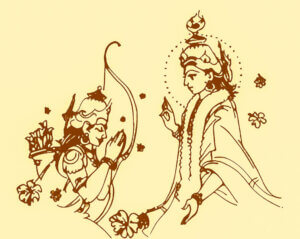
SAN1044 – (BGTS – Required Course) The Final quarter of the Proficiency phase of Bhagavad Gita through Samskritam program focuses ...
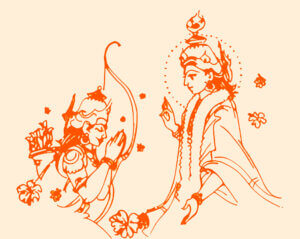
SAN1043 – (BGTS – Required Course) The Third quarter of the Proficiency phase of Bhagavad Gita through Samskritam program focuses ...
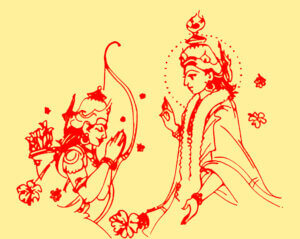
SAN1042 – (BGTS – Required Course) The Second quarter of the Proficiency phase of Bhagavad Gita through Samskritam program focuses ...
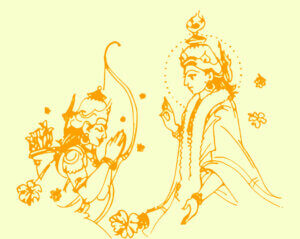
SAN1041 – (BGTS – Required Course) The First quarter of the fourth and final year (Proficiency phase) of the Bhagavad ...
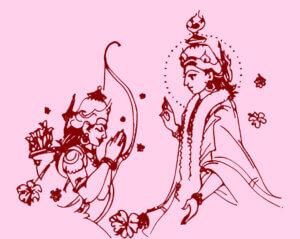
SAN1034 – (BGTS – Required Course) The Fourth and final quarter of the Advanced Phase of the Bhagavad Gita through ...
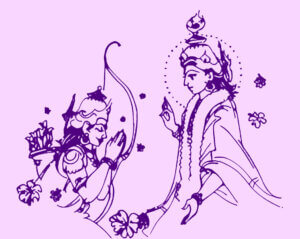
SAN1033 – (BGTS – Required Course) The Third quarter of the Advanced Phase of Bhagavad Gita through Samskritam will introduce ...
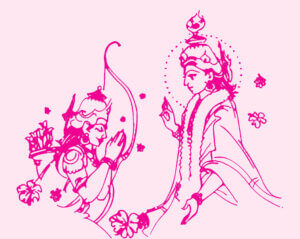
SAN1032 – (BGTS – Required Course) The Second quarter of the Advanced Phase of Bhagavad Gita through Samskritam will continue ...
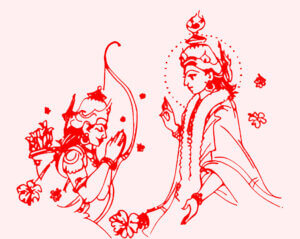
SAN1031 – (BGTS – Required Course) The First quarter of the Advanced Phase of Bhagavad Gita through Samskritam will introduce ...
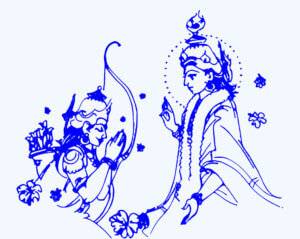
SAN1024 – (BGTS – Required Course) The Fourth and final quarter of the Intermediate Phase of the Bhagavad Gita through ...
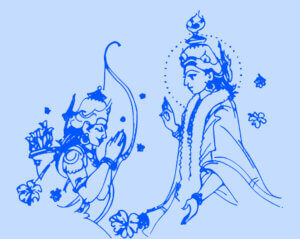
SAN1022 – (BGTS – Required Course) The Second Quarter of the Intermediate Phase of the Bhagavad Gita through Samskritam course ...
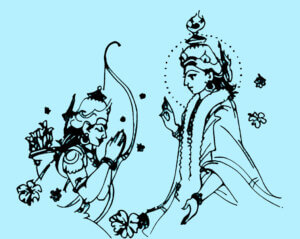
SAN1021 – (BGTS – Required Course) The First Quarter of the Intermediate Phase of the Bhagavad Gita through Samskritam will ...
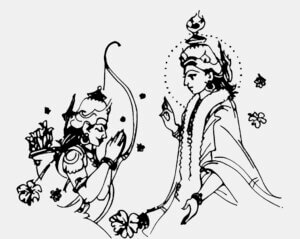
SAN1014 – (BGTS – Required Course) The Fourth and final Quarter of the Beginner Phase of the Bhagavad Gita through ...
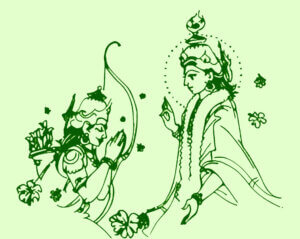
SAN1013 – (BGTS – Required Course) The Third Quarter of the Beginner Phase of the Bhagavad Gita through Samskritam course ...
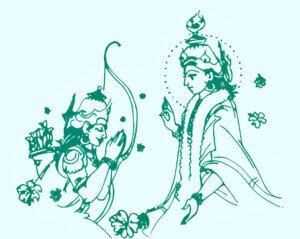
SAN1012 – (BGTS – Required Course) The Second Quarter of the Beginner Phase of the Bhagavad Gita through Samskritam course ...
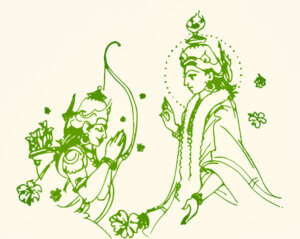
SAN1011 – (BGTS – Required Course) The First Quarter of the Beginner Phase of the Bhagavad Gita, through Samskritam, develops ...
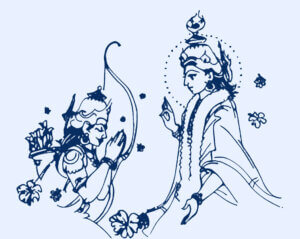
SAN1023 - (BGTS – Required Course) The Third Quarter of the Intermediate Phase of the Bhagavad Gītā through Saṃskṛtam course ...
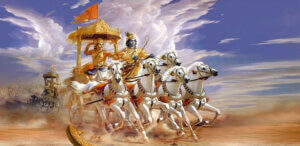
The 24-quarter-credit-hour Bhagavad-Gita through Samskritam Certificate program enables deep Sanskrit proficiency in reading and writing using the Bhagavad-Gītā ślokas, fostering ...

SAN0006 – The sixth and final course in the Micro Certificate in Spoken Samskritam (MCSS) concludes this well-structured program in ...

SAN0005 – (MCSS – Required Course) The fifth course in the Micro Certificate in Spoken Samskritam (MCSS) aspires to facilitate ...

SAN0004 – (MCSS – Required Course) The fourth course in the Micro Certificate in Spoken Samskritam (MCSS) aims to enable ...

SAN0002 – (MCSS – Required Course) The second course of the Micro Certificate in Spoken Samskritam (MCSS) will primarily focus ...

SAN0001 – (MCSS – Required Course) The first course of the Micro Certificate in Spoken Samskritam (MCSS) will primarily focus ...

SAN0003 – (MCSS – Required Course) The third course in the Micro Certificate in Spoken Samskritam (MCSS) aims to to ...

The 9-quarter-credit-hour Micro Certificate in Spoken Samskritam enables students with prior Devanāgari (Script) knowledge to achieve conversational proficiency in Saṃskṛtam ...
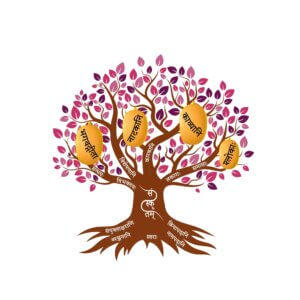
SAN0404 - (CPSP – Required Course) In the fourth and final quarter of the Proficiency Phase of the Certificate Program ...
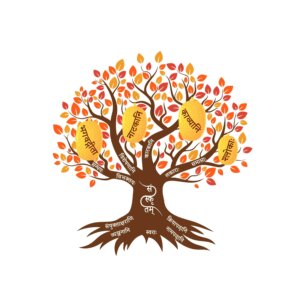
SAN0403 - (CPSP - Required Course) In the third quarter of the Proficiency Phase of the Certificate Program in Sanskrit ...
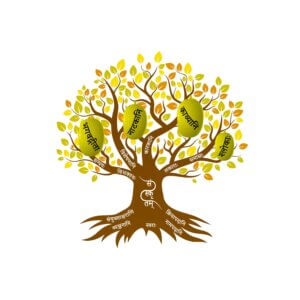
SAN0402 - (CPSP - Required Course) The second quarter of the Proficiency Phase of the Certificate Program in Sanskrit Proficiency ...
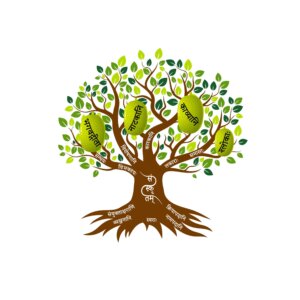
SAN0401 - (CPSP - Required Course) In the first quarter of the Proficiency Phase of the Certificate Program in Sanskrit ...
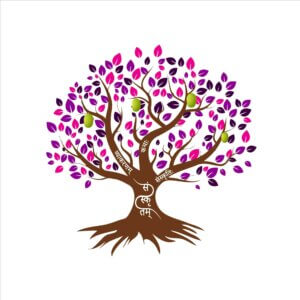
SAN0304 - (CPSP - Required Course) In the fourth quarter of the Advanced Phase of the Certificate Program in Sanskrit ...
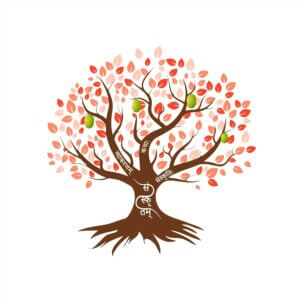
SAN0303 - (CPSP - Required Course) In the third quarter of the Advanced Phase of the Certificate Program in Sanskrit ...
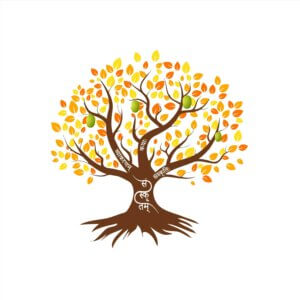
SAN0302 - (CPSP - Required Course) In the second quarter of the Advanced Phase of the Certificate Program in Sanskrit ...

The 24-quarter-credit-hour Certificate Program in Sanskrit Proficiency takes students from a beginner level towards proficiency, preparing them to engage directly ...

SAN0301 – (CPSP – Required Course) In the first quarter of the Advanced Phase of the Certificate Program in Sanskrit ...
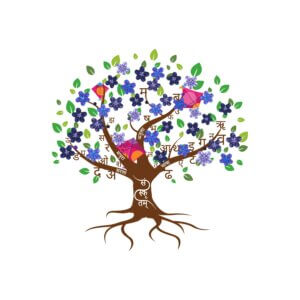
SAN0204 - (CPSP - Required Course) In this last fourth quarter of the Intermediate Phase of the Certificate Program in ...
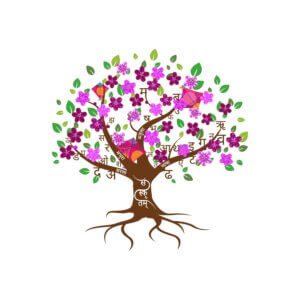
SAN0203 - (CPSP - Required Course) The third quarter of the Intermediate Phase of the Certificate Program in Sanskrit Proficiency ...
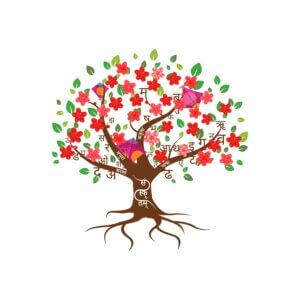
SAN0202 - (CPSP - Required Course) In the second quarter of the Intermediate Phase of the Certificate Program in Sanskrit ...
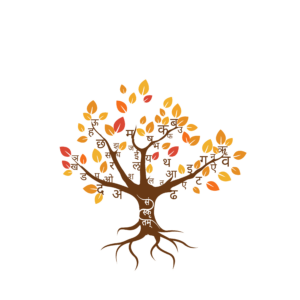
SAN0102 - (CPSP - Required Course) The Second Quarter of the Beginner Phase of the Certificate Program in Sanskrit Proficiency, ...
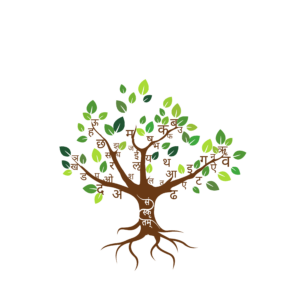
SAN0104 - (CPSP - Required Course) The fourth quarter of the Beginner Phase of the Certificate Program in Sanskrit Proficiency ...
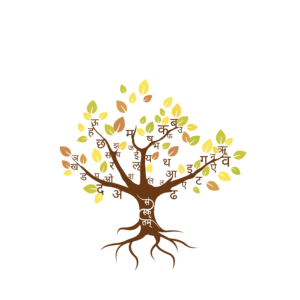
SAN0103 - (CPSP - Required Course) The third quarter of the Beginner Phase of the Certificate Program in Sanskrit Proficiency, ...
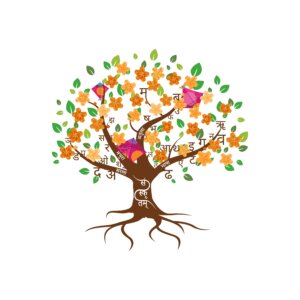
SAN0201 - (CPSP - Required Course) The first quarter of the Intermediate Phase of the Certificate Program in Sanskrit Proficiency ...
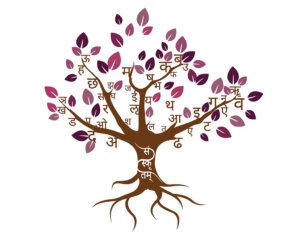
SAN0101 - (CPSP - Required Course) The First Quarter of the Beginner Phase of the Certificate Program in Sanskrit Proficiency, ...
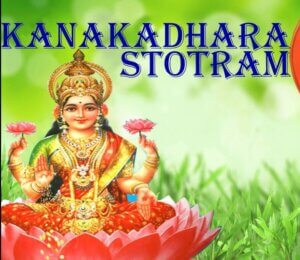
SAN3104 – In this Course students will learn select shlokas from Adi Shankara’s Kanakadhaaraastotram. The entire course will be taught ...
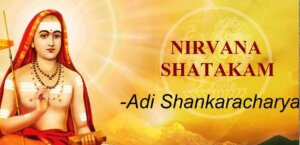
SAN3103 – In this Course students will learn the full set of 6 shlokas from Adi Shankara’s NirvaaNaShaTkam text. The ...
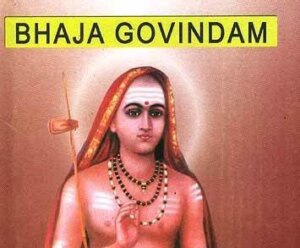
SAN3102 – In this Course Students will learn to think about the Bhaja Govindam from within the Sanskrit language, along ...
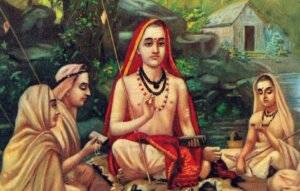
SAN3101 – Among the stotra literature Soundaryalaharī, attributed to Ādi Śaṅkarācārya, occupies a special place. It is in the form ...
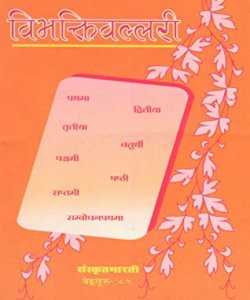
SAN0007 - Refresh knowledge of tenses and vibhaktis; Read and comprehend hitopadesha stories; Engage in everyday conversations; Comprehend longer stories, ...

SAN3107 In this course students will build upon their study of Yogashaastram in SAN3101-4, plus SAN3105-6, to gain familiarity with ...

SAN8110 – (Sanskrit Studies – Elective Course) The schools of philosophy based on the last portions of the Vedas, i.e ...

SAN7102 - (Sanskrit Studies - Required Course) Pāṇini’s Aṣṭādhyāyī is a monumental work in the sūtra format (short aphorisms) that ...

SAN6102 - (Sanskrit Studies - Required Course) The course involves the study of sections of the Laghu-siddhānta-kaumudī pertaining to the ...

SAN5102 - (Sanskrit Studies - Required Course) Pāṇini’s Aṣṭādhyāyī is a monumental work in the sūtra format (short aphorisms) that ...

SAN7101 - The key features of the Navya-nyāya system of thought as it evolved in time to become the main ...

SAN6104 - The course provides an overview of the features, structure, and contents of the Ṛgveda as well as provides ...

SAN8101 - At the end of 36 Credit-hours of course work, students will have an adequate introduction to the subjects ...

SAN6101 - Two distinct systems of classification of world phenomena, i.e. ontologies have emerged from the Vedic thought called Nyaya ...



























































































